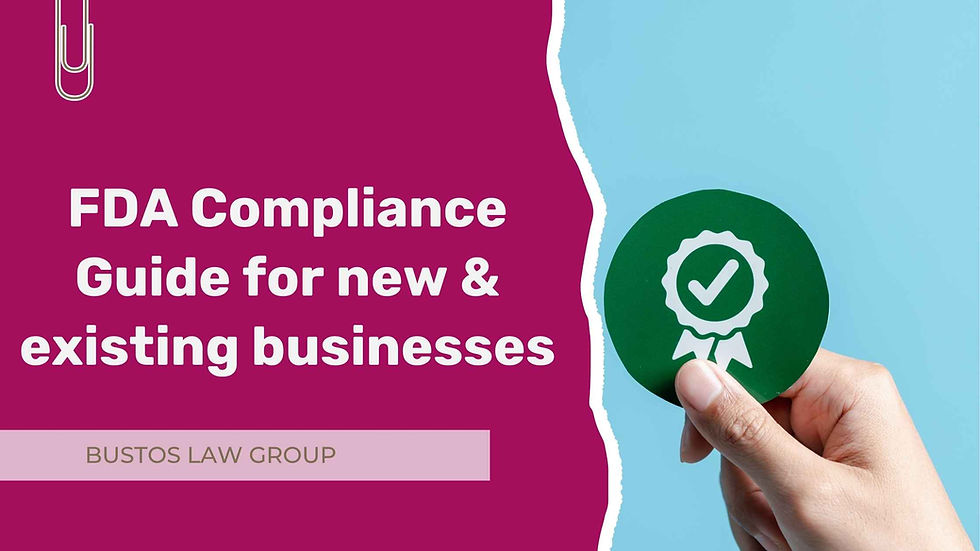What's The Deal With Masks and Coronavirus?
- Bustos Law Group

- Jul 15, 2022
- 3 min read
Updated: May 14, 2025
The internet is being bombarded with pictures of people in masks, people sewing masks out of fabric at home and some even making masks out of bras (I'm not kidding).
When it comes to the spread of any airborne pathogen, pictures of people wandering empty streets and medical staff in masks seem to pop up on every article header.
This has left many with questions about these masks and we are here to answer some of them.
The questions everyone seems to be asking are:
What are these different kinds of masks?
Which masks are safe and effective in stopping the spread of the virus?
Does everyone need them?
Let's just dive right in:
What are these different kinds of masks?
Well, the two major types of masks are surgical masks and N95 masks.
A surgical mask is a loose-fitting, disposable device that creates a physical barrier between the mouth and nose of the wearer and potential contaminants in the immediate environment.
This is the mask you see nurses and doctors traditionally wear around hospitals, dentists wear during surgery, or the ones you are likely seeing worn by people everywhere now these days.
N95 masks or filtering facepiece respirators are much more complex as they are designed to achieve a very close facial fit and very efficient filtration of airborne particles. These are usually worn by contractors to keep dust particles from being breathed in.
Most of them are manufactured to be used in industrial settings, but some N95 respirators are intended to be used in a healthcare setting.
Specifically, single-use, disposable respiratory protective devices are used and worn by health care personnel during procedures to protect both the patient and health care personnel from the transfer of microorganisms, body fluids, and particulate material. These surgical N95 respirators are class II devices regulated by both FDA and NIOSH.

Which are safe and effective in stopping the spread of the virus?
The N95 respirator is going to provide better protection from the virus than the surgical masks since it has a tighter fit to filter airborne particles and goes through a more rigorous process of clearance.
N95 respirators must not only meet FDA requirements but also another branch of CDC called NIOSH (National Institute for Occupational Safety and Health). However, even a properly fitted N95 respirator does not eliminate the risk of illness or death.
Whether surgical masks or N95, at this point in the spread, healthcare workers are looking for anything to provide protection. This has amounted to many hospitals ordering staff to reuse these devices, which are meant for one-time use.
Even the masks being sewn around the country are a better option than nothing at all. The CDC now has offered guidance on using homemade masks in a pinch.
So, the answer is that N95 masks are the safest, but any mask is better than none at this point with such drastic shortages.
Does everyone need them?
No, not everyone needs them.
The masks are best utilized by healthcare professionals who are dealing directly with the patient population. If all of us are staying home (like we should), the only time you should use one is if:
you get sick and don't want to give the virus to others in your household or
if you are a caretaker and don't want to contract it from someone in your household who is affected.
For now, the best thing to do is stay home, read a book and if you're like me, surf the web for the FDA guidance that is coming out daily. Discover the truth about masks and coronavirus.
Learn how masks protect you, their effectiveness, and why they are important during the pandemic.
If you would like more information on how to manufacture or distribute masks, give Buston Law Group a call at (832) 592-7851.



Comments